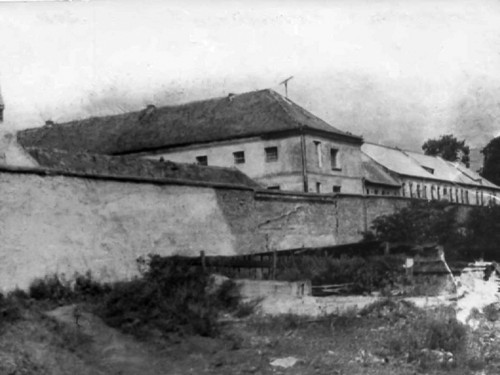
1977 year. Plyushch Leonid Ilyich is indignant with hyper diagnostics, and the World congress of psychiatrists condemns the Soviet colleagues.
by"It at all that"
Brezhnev and his team were sure that everyone visited at the psychiatrist by all means is sick. Especially if they directed the person on psychiatric examination, demanding to recognize him deranged. Therefore the exchange of "the insane of the criminal" Bukovsky Vladimir on the secretary general of Communist Party of Chile Luís Korvalan seemed favorable: the dictator Pinochet gives the most valuable captive, and we will expel the main dissident and let all see that he is the pathetic loony.
However in two and a half months, on March 1, 1977, Bukovsky Vladimir already sat in the White House on a sofa with the president Carter Jimmy. Also said that according to the Helsinki Final Act there should not be no political prisoner, especially in mental hospitals. The USSR, suppressing the citizens, will want to suppress strangers, and will attack someone from neighbors more weakly soon. It is possible to avoid it only forcing Councils to observance of human rights, by pressure, embargo and boycott of the Moscow Olympic Games.

Carter Jimmy nodded though did not estimate. But in two weeks of the proposal Bukovsky Vladimir Brezhnev estimated and abused assistants: "Companions, what it you did? You assured me that he that, and he at all that, acts there everywhere, is able to speak … What you to me let out figures? "
In the same night knew that fight came to new level: the 23-year-old paramedic of the Moscow ambulance wrote about system of violent hospitalization the "the Archipelago GULAG". The book "Retaliatory Medicine" was called. The author, Alexander Podrabinek, hurried to end it to the VI world congress of psychiatrists to Honolulu, planned for the end of August, 1977.
withit Worked as Solzhenitsyn: studied the historical background, wrote down certificates of victims, most often on the Legend tape recorder, got texts of laws and confidential instructions of Ministry of Health. The general Grigorenko Petr whom Alexander Podrabinek looked after as the physician after return of that from a mental hospital became the valuable informant.
Grigorenko Petr creates "The working commission on investigation of use of psychiatry in political goals"
In the second part of our story we left the degraded general in a six-meter chamber of Chernyakhovsk special psychiatric hospital alone with the patient who killed the wife. That looked motionlessly before itself(himself) or stuck with incoherent speeches. At night Grigorenko Petr woke up from a heavy look of the oskalenny madman ready to a throw. In few months that attacked, but the general was stronger. Hardly Grigorenko Petr threw off the madman on a floor, the door opened – outside watched fight and expected it an outcome. Grigorenko Petr spent the next 37 months in the single. People saw on short walk yes in a corridor when removed in a toilet. Drove purposely seldom, it was necessary to suffer constantly.
To hospital Grigorenko Petr was the athlete – to put on it a strait jacket, brought together 12 people. Now it turned into the shuffling diabetic with adenoma, it shook under way. It could not leave live hospital, but in 1974 the sent Solzhenitsyn called President of the United States Nixon to say for Grigorenko Petr the word – and that quickly released. The general did not repent and contrary to diseases continued dissident life.
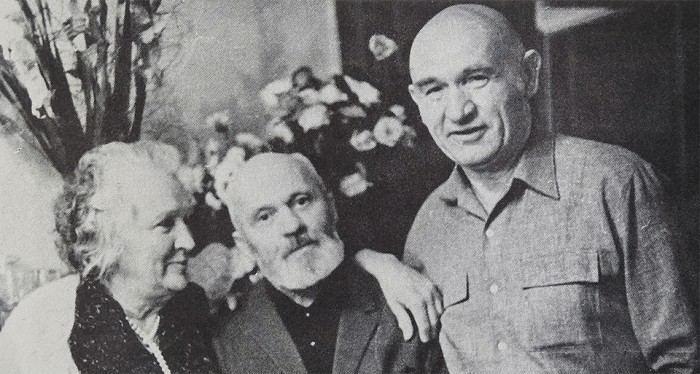
to be the dissident is not to abuse the Soviet power in kitchen under Golos Ameriki. It when to you day and night are knocked offended, dismissed, robbed, relatives of arrested and innocently condemned. The psychiatric hospital appeared in every third case. Grigorenko Petr suggested to create at the Helsinki group watching human rights violations, special medical commission. It not simply collected complaints. In its structure there was a volunteer psychiatrist who carried out survey of the violently hospitalized. Results of its examination were transported to London, to Royal college of psychiatrists.
the Volunteer from the 20th psychiatric hospital
the First volunteer became Alexander Podrabinek Voloshanovich. He examined wishing on Wednesdays on the apartment where Alexander Podrabinek, or stayed with himself in the Dolgoprudny hospital, in night watches. Voloshanovich very much tried, knowing that each his examination is looked through by foreign colleagues. On filling of the British questionnaire, collecting the anamnesis and the conclusion on one visitor the whole day left.
the Apartment was listened by, at an entrance the car was on duty. Subexpert fixed, but did not touch. Voloshanovich's conclusions were as charters of immunity: with them did not put in a mental hospital. Any examination did not get to KGB: handed out only the certificate of groundlessness of compulsory treatment, and the developed conclusion was stored in London.
the Pursuit of ambulance car the Working commission officially earned by on January 5, 1977 when on press conferences her members, except Voloshanovich were presented. The most young and from them Alexander Podrabinek, yet not burdened with a family was active. Its free time was devoted to the Working commission and "Retaliatory medicine". A in working hours at gate of its substation stood the car filled by people. At first the medical staff was frightened that it is hunters for omnopony, called in the Municipal Department of Internal Affairs to the person on duty on the city. Alexander Podrabinek explained who it – to him believed not at once. Then, as he remembers, "all calmed down, having understood that the raid of addicts on substation will not be. In my following watch there was a day of attractions. When I left on a call, all poured out to look at the street how the gebeshny car obediently will go for me. Many were delighted. My driver — the young guy with whom every summer we were cut in the substation yard in table tennis, arranged show on road. Having included a flasher and a siren that was quite lawful when we hurried on a call, it came out to Taganskaya Street where there was an one-way traffic and an oncoming trolleybus lane. On this counter we also rushed on a call, and behind us the only car went... Somehow at the intersection the dumbfounded GAI officer, swinging a striped stick, tried to stop the impudent breaker of rules traffics, but from the car it was given a sign, and it instantly receded. We marked a sign — lime "Volga" blinked to it one headlight". "Could not work soon. "Ambulance" has "chronicles". As a rule, it is asthmatics or cores … After my their arrival militiamen in the beat and people in the civilian, registrations checking a mode and possible presence at the apartment of foreign persons began to visit. Patients, maybe, also would not correlate these visits to me, but people in the civilian asked them on work of "ambulance" and personally on me". Visit of intelligence services does not promise to the core anything good. It was necessary to pass to work as the dispatcher. And it still not Alexander Podrabinek, and his "chief" Orlov Youri (which in the third part went to Snezhnevsky), the head of the Helsinki group was the purpose of KGB. The paramedic interested bodies when the graduate student of Academy of the General Staff Vvedensky Vladimir called to Lubyanka and reported that to such address there are anti-Soviet materials. to It to Vvedensky Vladimir had no place to meet the mistress by the name of Zhabina. And Zhabina was on friendly terms with the typist who has reprinted "Retaliatory medicine" clean. Leaving for work on March 13, the typist gave to lovers the flat key. Guests successfully combined sex, perfidy and a denunciation. That was in this book Three years Alexander Podrabinek brought together all known about retaliatory psychiatry. On a sample "the Archipelago GULAG" at first goes historical digression and a sketch of laws, and then, with a mass of the concrete examples, all stages of the conveyor, which formal purpose – to force the dissident to repent and stop "antisocial activity". the Author with skill investigates so-called treatment. The general idea of anti-therapy – to knit in the vyachesky ways. Here evolution is traced. In the 40th years strait jackets were replaced by a damp ukrutka: the person wind with a damp canvas, pulling that there are forces. Drying, fabric sits down and squeezes a body, as "the Spanish boot" inquisitions. old means of suppression of violent alcoholics was put to use Then: injection of a suspension of sulfur in oil, sulfozina. From it temperature and a place of a prick so painfully rises that is terrible to move. In the late fifties began to make neuroleptics. Aminazine in huge doses knits not hands, and directly neurons of a brain. As Plyushch Leonid Ilyich described this state: "Not that to write and speak, even I cannot think". B 60th. If to give it on 4 tablets a day without proofreaders, the person does not know rest. As Gershuni Vladimir told: "hardly lay down, pulls to rise, slightly stepped, pulls to sit down, and having sat down, already there is a wish to go again, and there is no place to go". This certificate from the Oryol special psychiatric hospital induced Alexander Podrabinek to start on the book. Systematization of hundreds examples shows that before us not "hyper diagnostics cases", and the debugged car. To it all the same whom to mill: that the chastener executes by order of, he will make and for money. The most terrible special mental hospital left for 500 rubles. Hospitalization of the bothered wives, competitors and chiefs had the price. Anti-advisers any more did not make the majority among "healthy patients". each car has a weak place in which it breaks. This car can be broken, having taken away from it a medicine rank for what Alexander Podrabinek and called psychiatrists of the world: "to declare full boycott to the Soviet psychiatrists until in Soviet Union will be though one prisoner in psychiatric hospital for political reasons". After book withdrawal from the author kept the eyes glued crew of external supervision. The spare copy was taken from a hiding place by his brother Podrabinek Kirill. Other member of the Working commission — the programmer Bakhmin Vyacheslav — edited the text and transported diplomatic mail to London. Activists "" transferred Amnesty International extended. the Effect which it conceived, defined the decision of the Nobel committee: "Amnesty International" received an award of the world of 1977. 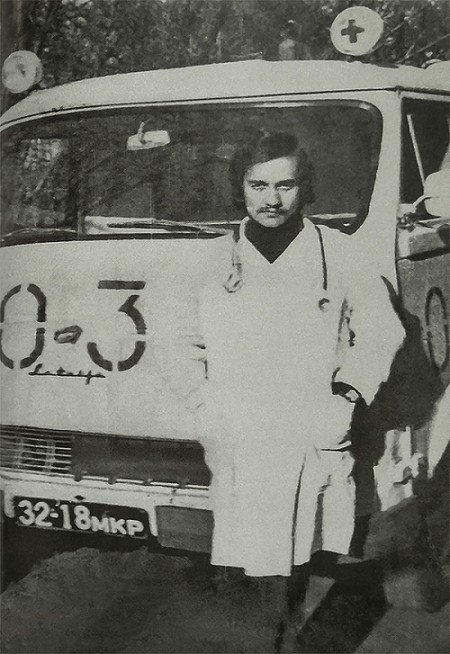
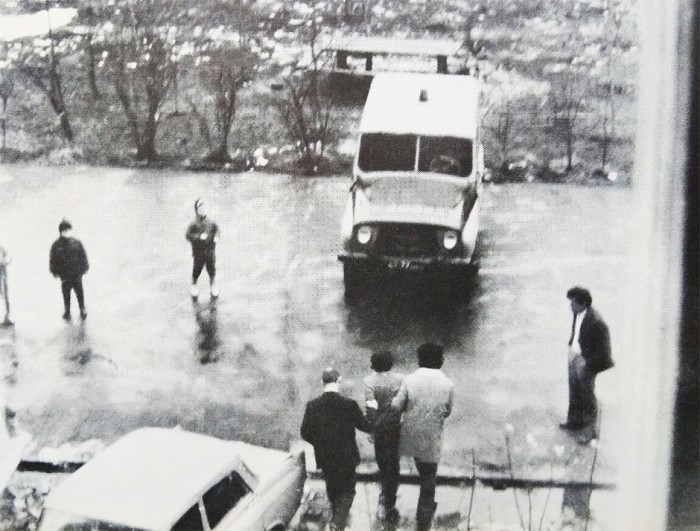
the Delegation of All-Union society of neuropathologists and psychiatrists was prepared by
not very well. From 400 reports at a forum to Honolulu Soviet was only 20. Snezhnevsky offered the following explanation: "State of Hawaii is very far". It meant: to an expensive trip sent only me yes the different administration, and that who does reports, places did not suffice.
Deputy ministers inertly beat off from the Australians demanding condemnation of the Soviet psychiatry: "Where proofs? There are at you conclusions signed by the Soviet doctors in which the healthy person is declared by the patient? " In the evening on August 31 to a tribune there was a psychiatrist Voykhanskaya Marina from Saint Petersburg. It worked in hospital No. 3 where violently hospitalized Faynberg Victor who in the 68th protested on the Red Square against input of the Soviet armies to Czechoslovakia. Voykhanskaya Marina did not begin to pin up it aminazine, and dissuaded other doctors. Besides, it left to Faynberg Victor the husband, went to England. To it did not allow to take with itself the 9-year-old son Mischa and threatened if she acts to take away the boy from the grandmother (mothers Voykhanskaya Marina) and to hand over in orphanage. Knowing all this, the British delegation listened to Voykhanskaya Marina standing.
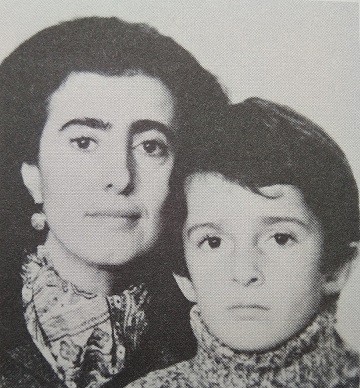
in hand "Retaliatory medicine", walked on it with comments, and opened the application at the end: "Here inundated "black list" – the psychiatrists who have sentenced healthy people. 103 surnames. Snezhnevsky, Morozov, Nadzharov – look, maybe, someone from them now sits near you". All three were to Honolulu, but that evening in advance disappeared from a hall.
Put when Poland cost 280 dollars
on September 1 the resolution was adopted unprecedented in the history of medicine: "VPA notes existence psychiatric repressions ̆ in political goals, condemns them in all countries in which they take place, and urges the professional organizations of psychiatrists to refuse from such ̆ practicians... VPA carries this resolution first of all to widely known systematic abuse of psychiatry in political goals in the USSR".
pro gave 90 votes, contra – 88. However, All-Union society redeemed not all voices in taken away to it under the charter to a quota. Three voices cost 280 dollars which for some reason was not.
Snezhnevsky's Deputy Vartanyan Marat considered that mobilization of psychiatrists of the socialist countries will fill shortage. However Poles with three paid voices were gone at the last minute. So Soviet psychiatrists were condemned by professional community, and Polish in punishment for it remained without exit visas till 1989.
Continuation follows
to